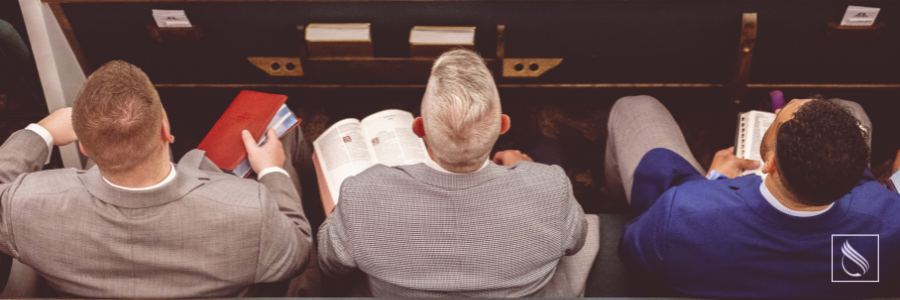You’ve been informed that someone has been arrested or that a registered sex offender is present in your congregation. What do you do?
Our first duty must always be to protect victims and potential victims from harm. Because Christ came to save sinners, churches are spaces dedicated to the power of forgiveness and grace. This means we must treat all involved with respect. However, implementing appropriate limits has little to do with forgiveness and grace; rather, these limits serve to protect the congregation from the offender’s potential sin as well as shield the offender from his or her weakness.Former ministerial director James Cress elaborates on our duty to protect victims and children: “Persons who have violated their sacred trust should not be placed in a position that will give them access again to children… Some advocate mercy for those who violate children, and of course, forgiveness is available to any sinner. Scripture, however, advocates mercy for their victims and protection for those who would become victims should they be loosed to prey again upon the innocent.”[1]
Before we give guidelines for protecting children, it is important to define who a sex offender is. According to the Adam Walsh Child Protection and Safety Act of 2006, a sex offender is a person who has been convicted of a sex offense.[2] The definition of a sex crime differs by jurisdiction, but common sex offenses include molestation, rape, sexual assault, child pornography, indecent exposure, and exploitation. If you have been informed that someone has been arrested on charges of sexual misconduct or is a registered sex offender, you will need to act immediately.
A church’s response to the presence of a sex offender is critical. Liability may arise if church leaders are aware a known sex offender is attending church services or activities and fail to institute appropriate safeguards. By not acting promptly, you may unnecessarily increase the following risks:
- “The risk of harm to vulnerable minors, and the emotional damages that an act of molestation may inflict upon them as well as their families.”
- “The risk of legal liability to the church if a minor is sexually molested by a known sex offender who was allowed unrestricted access to a church's services and activities because of the decision by church leadership to ‘err on the side of mercy.’”
- “The risk of personal liability for church board members if their failure to implement reasonable restrictions to monitor known sex offenders is deemed to be willful or wanton conduct or gross negligence.”
- “Adverse media publicity depicting the church in a negative light should a child be molested by a known sex offender who was allowed unrestricted access to church services and activities because of the decision by church leadership to ‘err on the side of mercy.’”3
The principle of respectful communication becomes increasingly important once you are ready to disclose attendance and/or participation arrangements with your congregation. Some members may be tempted to take sides or attempt to defend certain parties. Ensuring that church leaders’ communication is relevant, truthful, and respectful allows them to do their part in discouraging rumors. This may also prevent a divisive spirit from taking hold of the church.
Any sex offenders who attend your church or participate in any of the church’s activities (in any form) must sign a conditional attendance agreement. ARM has a sample agreement that can be used by local counsel. This participation agreement holds both the church and offender accountable when liability concerns arise. The agreement defines who a chaperone and sexual offender is. It also details the conditions and restrictions regarding participation in worship, travel with minors, and probation or parole officer contact.
In reviewing whether a person should be allowed to take part in church services and other activities, a record of the facts pertaining to the individual’s offense should be considered. Legal counsel in your jurisdiction should review the final draft of the conditional attendance agreement to make sure it meets all legal requirements in a way that is suitable for the individual.
Churches should be a place of spiritual healing for broken people, but that doesn’t mean sex offenders can have unfettered access to attack again. Congregations can be liable when they fail to protect individuals from harm that comes from a known sex offender. As churches, we must find a balance between our call to love and forgive everyone and the responsibility to protect our congregations. Both are in line with Christ’s example, which is what we should strive for as Christians.



